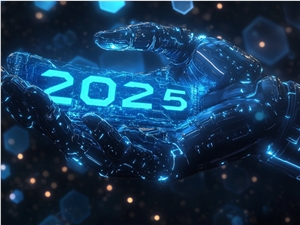According to a recent survey by the Pew Research Center, most Americans have a generally pessimistic and concerned attitude towards the application of artificial intelligence in daily life. This survey, conducted in June among more than 5,000 American adults, shows that the public's view on AI is becoming increasingly cautious, in sharp contrast to the optimistic views of tech industry leaders.

Concerns outweigh excitement, creativity and interpersonal relationships face threats
The survey results show that Americans have a "more concern than excitement" attitude towards AI. 50% of respondents said they are concerned about the increasing use of artificial intelligence in daily life, while only 10% said they were excited. This proportion has significantly increased compared to 37% in 2021, reflecting a shift in public sentiment.
Respondents expressed deep concerns about the impact of artificial intelligence on human abilities:
As high as **53%** of people believe that artificial intelligence will "weaken people's creative thinking ability."
**50%** of people think AI will weaken our ability to build meaningful interpersonal relationships.
**38%** of people said that AI may weaken our problem-solving ability.
Challenges in distinguishing truth from falsehood and the paradox of technological literacy
As the boundaries between AI-generated content and reality become blurred, the public is also worried about their ability to distinguish truth from falsehood. The survey shows that **53% of respondents said they "are not confident or completely not confident" in distinguishing whether an item was created by artificial intelligence or humans. However, as high as **76%** of people believe that being able to identify the source of images, videos, and text is "extremely important or very important."
At the same time, there is research suggesting that this growing sense of disillusionment may be related to increased technological literacy. A study published in the Journal of Marketing found that the biggest fans of artificial intelligence are often those who are least familiar with the technology. In other words, when people have a deeper understanding of AI, the initial "wonder" and "awe" gradually fade away.
Although public sentiment is becoming increasingly pessimistic, the tech industry still believes that AI will bring an "age of abundance" and continue to push its development at an astonishing speed, making it ubiquitous in daily life. However, public resistance is also growing, indicating that more and more people are beginning to doubt the promises of tech giants.









